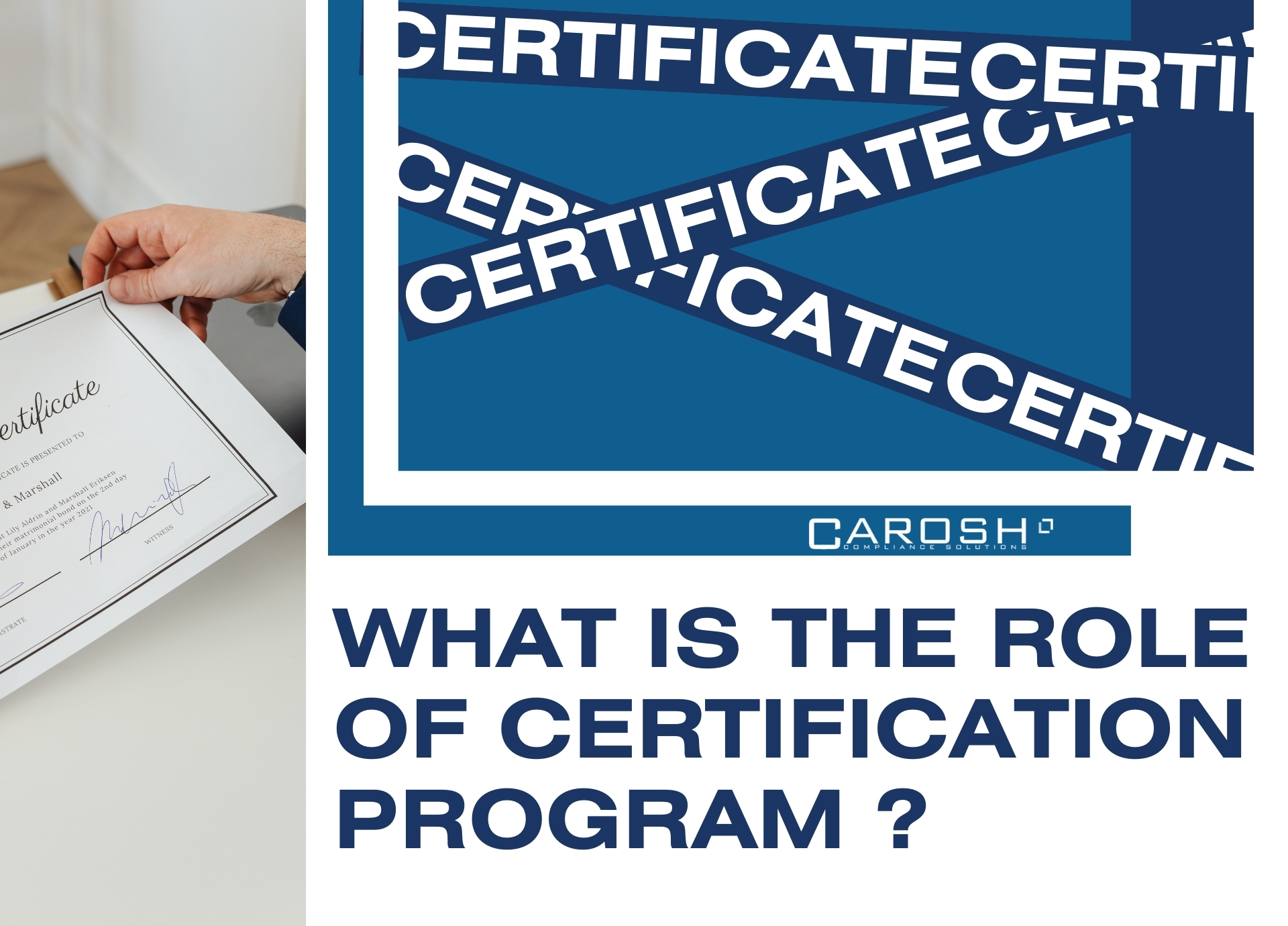
In the complex landscape of healthcare information management, professionals across the sector must understand and adhere to the Health Insurance Portability and Accountability Act (HIPAA). HIPAA certification programs play a crucial role in this educational journey by equipping healthcare workers and compliance officers with the knowledge and tools they need to effectively navigate the intricacies of HIPAA regulations. These programs, which range from general overviews to specialized courses, aim to bolster HIPAA compliance efforts within healthcare organizations. They ensure that staff handle protected health information (PHI) responsibly and securely, covering a broad spectrum of compliance needs.
Purpose and Scope of Certification Programs
HIPAA compliance certificates play a crucial educational role, aiming to deepen healthcare professionals’ understanding and application of the Health Insurance Portability and Accountability Act (HIPAA) regulations. These programs offer a comprehensive foundation in HIPAA rules, delving into the details of privacy, security, and breach notification standards as federal law dictates. Their main objective is to inform individuals who handle protected health information (PHI), either directly or indirectly, about their legal and ethical responsibilities to protect patient data.

A wide range of professionals within the healthcare industry forms the target audience for these programs, showcasing the broad relevance of HIPAA regulations. Administrators overseeing healthcare facility operations, compliance officers ensuring organizational adherence to legal standards, IT professionals responsible for the security of electronic health records, and healthcare providers who deal with patient information all benefit from obtaining these certificates. Such diverse targeting aims to cultivate a culture of compliance throughout healthcare organizations, ensuring operations at every level meet HIPAA’s rigorous privacy and security standards.
This educational strategy reduces the risk of non-compliance and equips professionals with the knowledge needed to adopt best practices in managing PHI. With the ongoing evolution of healthcare, especially in the digital domain, the demand for continuous HIPAA compliance education intensifies. Thus, these certificate programs become a vital part of professional growth in the healthcare field, ensuring practitioners are well-prepared to navigate the complexities of compliance.
Types of Certificates
Two primary types of HIPAA compliance training certificates exist, each designed to cater to the diverse needs and roles within healthcare organizations. General HIPAA Training Certificates aim to provide a foundational understanding of HIPAA regulations, focusing on the core principles of privacy, security, and breach notification as established by the Health Insurance Portability and Accountability Act. Targeting a broad audience, these certificates ensure that anyone in a healthcare organization who might encounter protected health information (PHI)—from administrative staff to healthcare providers—achieves a baseline level of knowledge about HIPAA. This ensures widespread adherence to regulatory standards across all levels of the organization.

In contrast, Specialized HIPAA Training Certificates are for those seeking deeper insights into specific HIPAA compliance areas or holding roles that demand a nuanced understanding of the regulations. Training might focus solely on areas like the Privacy Rule, Security Rule, or managing PHI intricacies, catering to the complex requirements and identifying best practices. Furthermore, roles such as HIPAA Compliance Officers can benefit from specialized certificates, gaining the advanced expertise needed to manage their organization’s compliance efforts effectively.
By providing both general and specialized training options, HIPAA compliance education initiatives meet the varied requirements of healthcare organizations. This dual approach guarantees that all employees understand HIPAA’s basics, while those with significant compliance responsibilities gain the advanced knowledge needed for effective regulatory navigation. Such a comprehensive educational framework aims to uphold stringent privacy and security standards industry-wide, ensuring patient information protection in line with federal law.
Format and Delivery
HIPAA compliance certificates cater to the diverse needs and schedules of healthcare professionals through various accessible formats. Online courses offer a flexible learning environment, allowing individuals to progress at their own pace. This format suits those who prefer self-directed study or work in locations with limited access to traditional classroom settings, balancing professional duties with the pursuit of HIPAA compliance education.

Conversely, in-person training sessions provide an interactive learning experience through workshops or seminars led by HIPAA compliance experts. This approach promotes active participation, enabling attendees to explore complex topics deeply, directly query instructors, and interact with peers facing similar challenges. In-person training is invaluable for addressing intricate subjects that benefit from hands-on learning and offers networking opportunities within the healthcare compliance field.
Both online and in-person training methods are pivotal in equipping healthcare professionals with the necessary knowledge and skills for effective HIPAA compliance navigation. By presenting diverse training options, these programs ensure that healthcare workers can achieve proficiency in HIPAA regulations and best practices, regardless of their learning preferences or professional commitments.
Benefits of Obtaining a Certificate
A HIPAA compliance certificate marks an individual’s or organization’s commitment to understanding and following HIPAA’s strict regulations. This recognition not only validates their dedication to protecting patient data privacy and security but also significantly contributes to the professional development of healthcare and compliance professionals. Obtaining this certification enhances one’s credentials, paving the way for better career opportunities in healthcare compliance. For organizations, having employees with HIPAA compliance certificates strengthens their compliance stance, serving as a proactive measure to align operational practices with HIPAA requirements and reduce the risk of legal violations and financial penalties. This dual benefit highlights the importance of HIPAA compliance certificates in creating an informed, compliant, and professionally progressive healthcare setting.
Limitations of Certification Programs
Understanding that obtaining a HIPAA compliance certificate does not legally certify an individual or entity as “HIPAA certified” by the U.S. Department of Health and Human Services (HHS) is crucial. The HHS does not provide official certification for HIPAA compliance, meaning that while these certificates are beneficial for educational and professional development purposes, they do not grant any legal status of compliance. Achieving compliance with HIPAA requires ongoing effort, constant vigilance, and the need to stay current with evolving regulations. Holding a HIPAA compliance certificate reflects a commitment to and knowledge of HIPAA at a specific point in time, but maintaining compliance demands continuous learning and adaptation. This sustained effort is essential to ensure that practices consistently meet the latest HIPAA standards and guidelines.
Selection of Training Programs
When choosing a HIPAA compliance certification programs, evaluating the offering organization’s credibility and reputation is essential. The curriculum’s quality and depth significantly impact participants’ grasp of HIPAA regulations, ensuring they receive comprehensive training. It’s also vital to ensure the program frequently updates its content to reflect the latest HIPAA regulations and guidelines. Such updates guarantee the program’s relevance, arming participants with up-to-date knowledge and best practices for HIPAA compliance. Opting for a program recognized for its adherence to regulatory developments not only boosts the educational experience but also aids the continuous compliance endeavors of healthcare professionals and organizations. These programs provide essential tools and insights for effectively managing the intricacies of HIPAA.
Certificates for HIPAA compliance mark a substantial stride in bolstering the comprehension and enactment of HIPAA regulations across healthcare environments. Although these certificates do not serve as legal certifications from regulatory bodies, they highlight an individual’s or organization’s dedication to protecting patient privacy and data security. The perpetual task of adhering to HIPAA compliance necessitates relentless education and adaptation to shifts in regulations. Thus, healthcare professionals must choose reputable and thorough training programs to enhance their expertise and aid in fostering a healthcare setting that prioritizes privacy. Carosh is one company that can provide support. Carosh is able to train employees on how to keep PHI safe, and what to do if a breach should occur. Click here if you would like to find out more about Carosh, and the training offered.
Q&A
Q: What is the purpose of HIPAA compliance certification programs?
A: HIPAA compliance certification programs are designed to educate healthcare professionals about the Health Insurance Portability and Accountability Act’s regulations, focusing on the proper handling, security, and privacy of protected health information (PHI).
Q: Who should consider obtaining a HIPAA compliance certificate?
A: Healthcare administrators, compliance officers, IT staff, healthcare providers, and any individual working within the healthcare sector who handles PHI can benefit from obtaining a HIPAA compliance certificate.
Q: Are HIPAA compliance certificates legally binding or recognized by the U.S. Department of Health and Human Services (HHS)?
A: No, HIPAA compliance certificates are not legally binding nor officially recognized by the HHS. They serve as a testament to an individual’s or organization’s commitment to understanding and adhering to HIPAA regulations.
Q: How often should healthcare professionals update their HIPAA training and knowledge?
A: Healthcare professionals should engage in continuous learning and regularly update their HIPAA training and knowledge to stay abreast of the latest regulations, technological advancements, and best practices in PHI management.
Q: What factors should be considered when choosing a HIPAA compliance training program?
A: When selecting a HIPAA compliance training program, consider the reputation of the issuing organization, the comprehensiveness of the curriculum, the relevance to specific job roles, and whether the program is regularly updated to reflect the latest HIPAA regulations and guidance.




